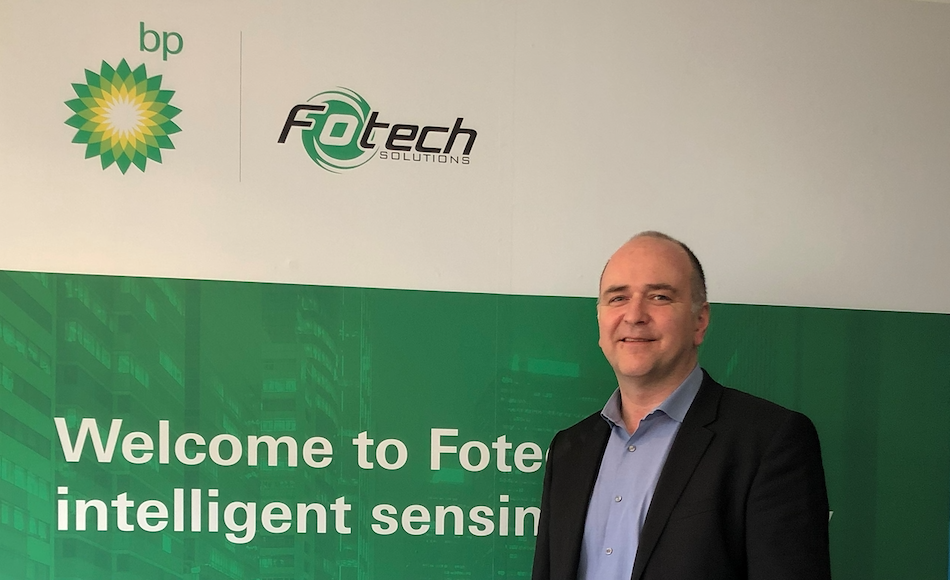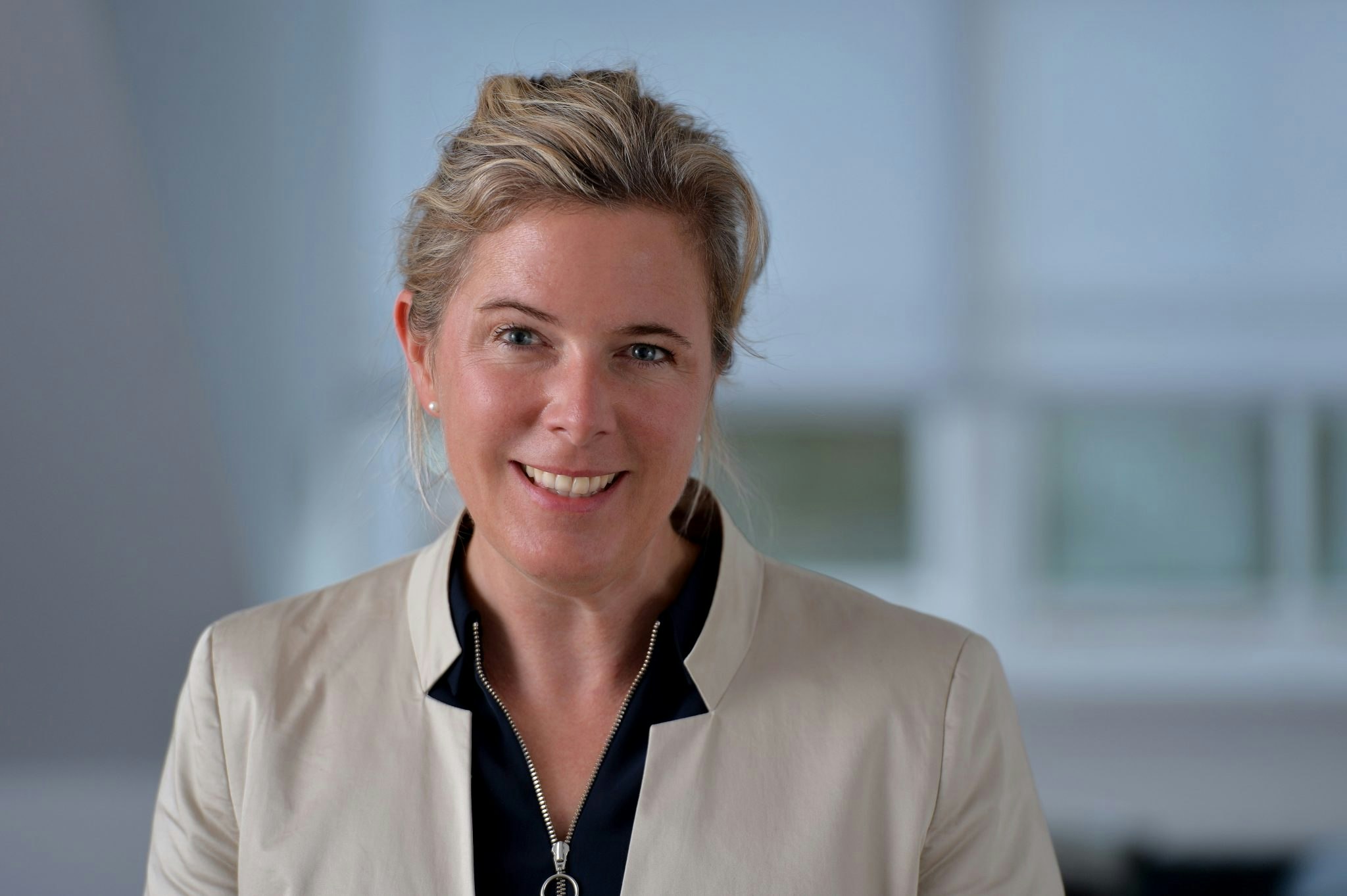Back in January, energy company BP made the (pretty bold) claim that it was going to build five new unicorn businesses worth more than $1bn over the next five years.
Well, it’s wasted no time getting going, having recently announced that it has bought a startup called Fotech that is going to become the cornerstone of one of those unicorns.
It’s a bit like a real-life Marauder’s Map
And the technology is a lot weirder than we expected — a system for turning cables below a city into a giant population monitoring device.
“It’s a bit like a real-life Marauder’s Map,” says Chris Shannon, chief executive of Fotech, as he explains what the company does.
That’s right. He said “Marauders Map”, as in the Harry Potter books — a magical map that can show you, in real-time, the location of every person moving around in the grounds of Hogwarts.
Fotech does this by giving the miles of fibre optic cable already dug into the ground the power to listen to what’s happening above.

How it works
Fibre optic cable, it turns out, can not only transmit information over long distances — it can also “hear” stuff that is happening around it.
Ok, it probably won’t identify the actual individuals walking around (and in this era of heightened privacy sensitivity, we probably don’t want it to). But it can detect movement of people and vehicles, transmitted to the fibre optic cable as vibrations. It can show you where buses are driving, where a city’s traffic congestion is and which direction crowds are headed.
If the fibre optic cable was coiled next to you on a bench and you played a piece of classical music the technology could reproduce the music.
It is pretty sensitive, says Shannon. If the fibre optic cable was coiled next to you on a bench and you played a piece of classical music right next to it, the technology would be able to reproduce the music pretty fairly accurately.
In practice, Fotech will not be spying on conversations — fibre optic cables tend to be buried in the ground or embedded inside walls, so it will not pick up voices and other high-frequency vibrations.
At the moment, the technology, which started as a research project at the University of Surrey (famous for its photonics lab which made significant contributions to the development of fibre optic networks), is mainly used in the energy sector, for things like monitoring oil pipes.
But Shannon — and BP — see immediate opportunities in areas like security, and bigger long term opportunities to work with smart cities initiatives. Why put a sensor on every lampost and building when you can turn your existing infrastructure into one big sensor?
The purchase of Fotech gives a glimpse into the type of ambition BP has to move into sectors adjacent to the energy industry.
“The big picture is that BP has a dual challenge to grow energy for a growing world population and to do that on a low carbon footprint,” says David Gilmour, head of BP Ventures, the company’s investment arm. “Part of that will come from efficiency, being smarter about the way we do our current business but also moving into very new areas.”
BP Ventures initially invested in Fotech in 2013 and recently deemed the technology interesting enough to acquire it fully through the new Launchpad division.

Two startup tracks
Launchpad and BP Ventures are two slightly different, but complementary ways BP has of dealing with startup partnerships. BP Ventures is for taking minority stakes in promising businesses — it has invested some $500m in 40 businesses to date. The venture fund does not have the same pressure to deliver a financial return as a stand-alone venture capital firm, but needs to provide “strategic value”, says Gilmour — that is, helping BP increase customers or save money. But it operates in a more arms-length way.
We are definitely going to be part of one of those unicorns, either as part of a combined business or on our own.
Launchpad is for companies that BP wants to own fully — at least for a time. Eventually, these may be absorbed into the business and become one of the company’s operating divisions. Or they could eventually be spun out of the company. But they are companies that are seen as benefiting from an extremely active engagement with the Launchpad company builder team, and could where they can be merged with internal BP staff and projects.
“We are going to work with the team at Launchpad to really accelerate this business and see just how big it can be, unfettered by inadequate investment,” says Shannon. “We are definitely going to be part of one of those unicorns, either as part of a combined business or on our own.”
Can it really become a unicorn?
This is not Shannon’s first rodeo when it comes to acquisitions. He is a serial entrepreneur who has sold five companies before and has a fairly cynical view of acquisitions.
The classic thing to do after acquiring a company is to change the name on the building and absorb all the employees into the parent company systems, and then 24 months later wonder why you have slowed everything down.
“The classic thing to do after acquiring a company is to quickly change the name on the building and absorb all the employees into the parent company systems, and then 24 months later wonder why you have slowed everything down,” he says.
Launchpad faces all the usual scepticism about startup-corporate collaboration. Can you really grow a tech “unicorn” inside a big company?
But for the moment, Launchpad at least seems to be doing things differently, says Shannon. No heavy-handed integration or corporate protocols, he says. “At Launchpad the thinking is that that is exactly what you don’t want to do,” he says. It helps that the innovation unit sits slightly outside the normal BP mothership, with less red tape.
Fotech joins two previous Launchpad acquisitions, Lytt, a subsurface analytics company, and Stryde, a seismic technology business. Both were initially developed to improve the productivity of oil wells but, like Fotech, have the potential to be applied to other industries. Now BP just needs to find the wizard touch to combine them into some kind of magical beast.



